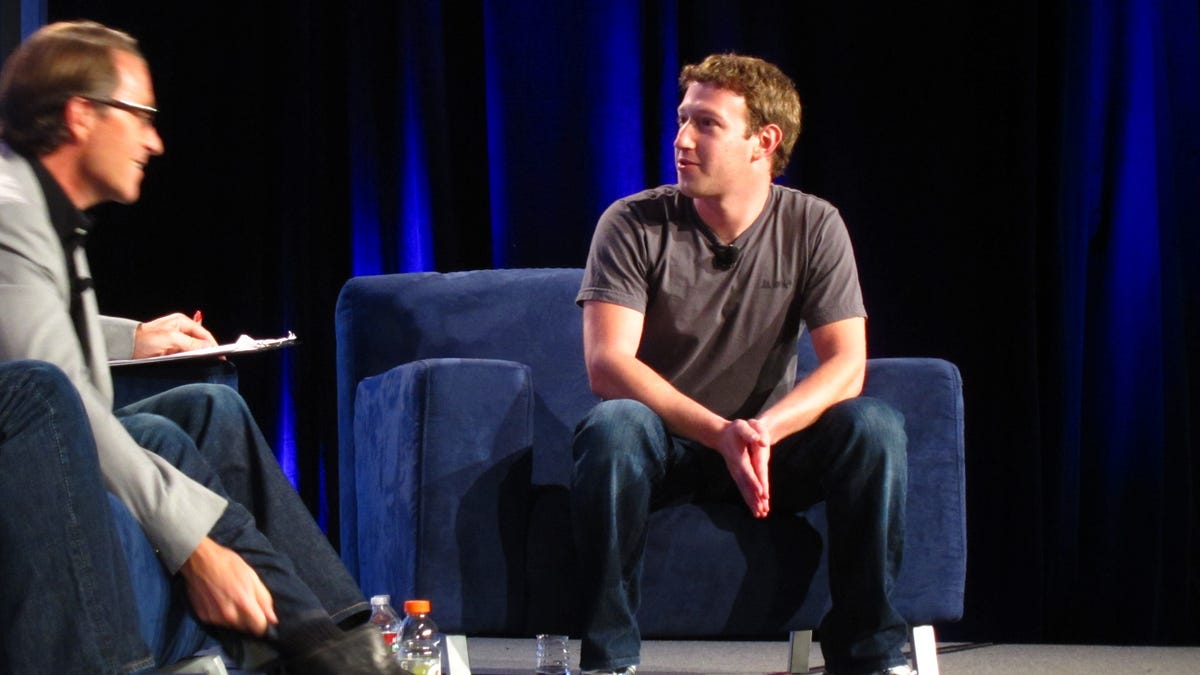Zuckerberg: We don't have the answers yet
The young CEO riffs on the complexities of dealing with Google, developers, and an impatient public in an appearance at the Web 2.0 Summit.

SAN FRANCISCO--Facebook CEO Mark Zuckerberg painted a benign portrait of his company in a talk this afternoon at the Web 2.0 Summit, countering both the concerns about how it handles users' personal information as well as its increasing power to muscle out other companies in an apparent quest to dominate the Web.
"I'm not sure we're 100 percent right on this," Zuckerberg said of Facebook's recent spat with Google in which the latter forbade Facebook users from importing their Gmail contact information because Facebook doesn't let them do the reverse. "The correct answer isn't completely obvious. I'm not sure that we're completely right, but I think it's not completely black and white."
He also returned to a common Zuckerberg talking point: that no matter how much Facebook shows up in the press and how many hundreds of millions of people are using the social network, that business-wise it is still extremely young. When interviewer John Battelle said that at six years old, Facebook is about the same age that Google was when it built its groundbreaking AdSense product, and he wondered if Facebook might do the same with a sweeping, Internet-wide social advertising system, Zuckerberg replied, "I think it's earlier-stage than Google (was)...We're getting started with ads and I think that's ramping up well."
He also obliquely defended Facebook's strategy of expanding through the acquisition small start-ups, like Hot Potato and Drop.io, and potentially snuffing out others by building products that immediately compete with smaller companies through the infusion of Facebook's massive scale--like rehashes of the News Feed that looked quite a bit like Twitter, and more recently Facebook Places, which replicates much of the functionality of Foursquare. On Tuesday alone, news broke that Facebook had made strategic "hires" through the acquisition of some intellectual property from Zenbe (first reported by CNET) and Walletin, which brought former Linden Lab CTO Cory Ondrejka on board.
(Facebook made failed attempts to acquire both Twitter and Foursquare.)
Zuckerberg said that the development of products like Places fits into its strategy of providing a platform on which other companies can build, and not an attempt to snuff out start-ups. "Groups, location, (and) messages are really core parts and either distribution channels, or what we view as foundational building blocks of the social graph," he explained.
Imperfection and a willingness to change and evolve are two things that Zuckerberg frequently brings up in public appearances, applied both to Facebook as a company and to himself as a CEO.
"I've made so many mistakes in running the company so far. Basically, any mistake that you can think of I've made or will make in the next few years," Zuckerberg said. "If you're building a product that people love you can make a lot of mistakes."
Zuckerberg is still only 26. The rhetoric of being young, fallible, and subject to constant change won't always work for Facebook--or for the CEO himself.

